Singapore has seen a rise in innovative technologies. And while it may be an overstatement to say that global pandemic such as COVID-19 created the need for such technologies, they are being used to address the crisis.
One of these technologies — thermal facial recognition — has become one of the primary vehicles to curb COVID-19’s spread as the high temperature is one of the main symptoms.
Interestingly enough, Health Minister Gan Kim Yong emphasised the very same point — temperature screening is part of Singapore’s collective measures to tackle COVID-19.
When Singapore eases COVID-19 circuit breaker measures, firms must adopt “safe management measures” at the workplaces such as on-site temperature screenings twice a day to prevent COVID-19 from spreading in the community again.
Read on to find out how thermal facial recognition is a crucial tool for businesses and public sites that seek to stop COVID-19 spread.
Does It Help Stop the Spread of Viruses Similar to COVID-19?
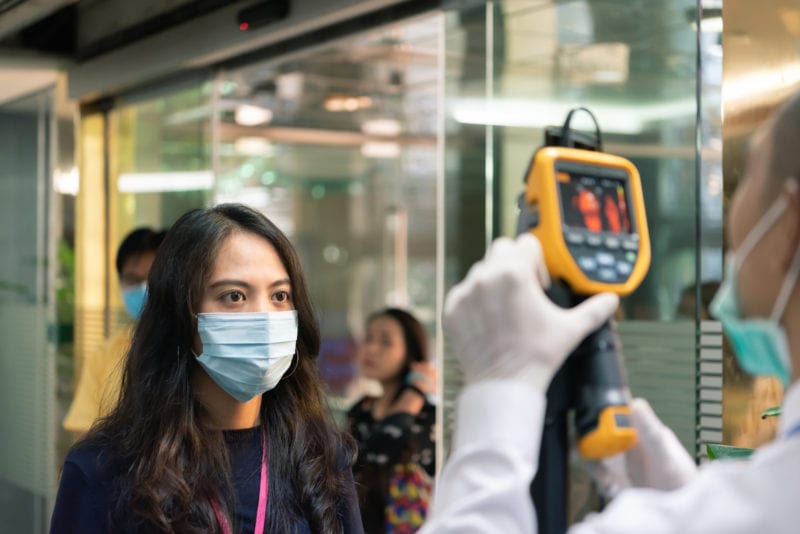
Yes, to an extent – thermal body temperature tools can help organisations identify people showing COVID-19 symptoms, but they do not diagnose it.
However, this does not imply that thermal body temperature solutions do not add value to the overall collective measures strategy.
In fact, the travel and health declarations recorded at these screening stations in Singapore has significantly helped the authorities to track people’s movements and report for non-fever symptoms such as cough, runny nose or breathlessness.
On the other hand, Singapore has up its game by deploying 29 thermal military imaging systems to their screening checkpoints, enabling more precise thermal imaging than the commercially-available thermal scanners in today’s times.
Are Traditional Thermometers Useful?
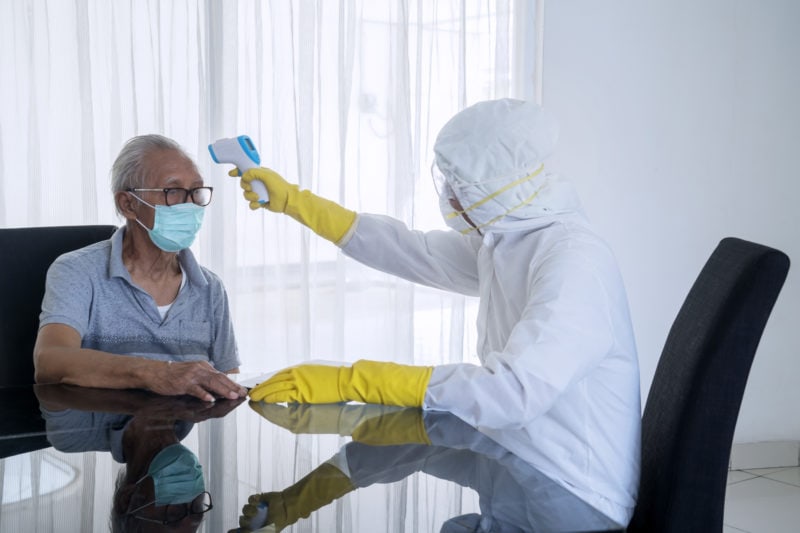
Traditional thermometers such as digital thermometers, mercury-in-glass thermometers, ear or forehead thermometers are known to be time-consuming as it can cause long queues in areas with a high volume of people.
Let alone; it can increase the risk of cross-contamination due to its close contact measurement.
Not to mention the fact that there’s no data collection because it doesn’t provide data analysis or evaluations.
So, it’s important to look into utilising thermal imaging and facial recognition, especially in hospitals and police stations as they are known to be essential services that still need to run.
Such screenings can reduce the workforce burden on contact tracing to find people who had been in close proximity with confirmed COVID-19 patients as stated by security experts.
Are There Any Limitations of Temperature Screening Checks?
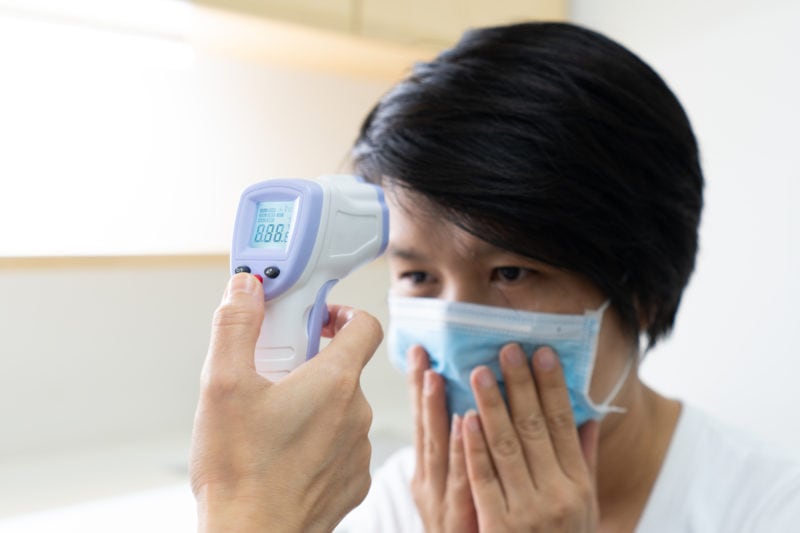
As noted earlier, temperature screening is one of the important tools for detecting COVID-19 cases because ultimately, many patients catch a fever – in tune with Health Minister Gan Kim Yong’s statement at a press conference.
Although, it is not a foolproof measure and should not be regarded as the only method to recognise people who are sick as stated by the health authorities.
The reason is other patients don’t have a high temperature during the incubation period or at the initial stage of the virus.
On the other hand, temperature checks are the most objective test that most public spaces should administer, stated by Professor Ooi Eng Eong, deputy director of the emerging infectious diseases programme at Duke-NUS Medical School.
He states further that it’s something that can be used to identify Covid-19 cases. With that said, having such practice across Singapore is still better than nothing because it would help detect high temperature or feverish folks.
Thermal Facial Recognition Technology is a Step-Up From Commercial Temperature Screening Devices
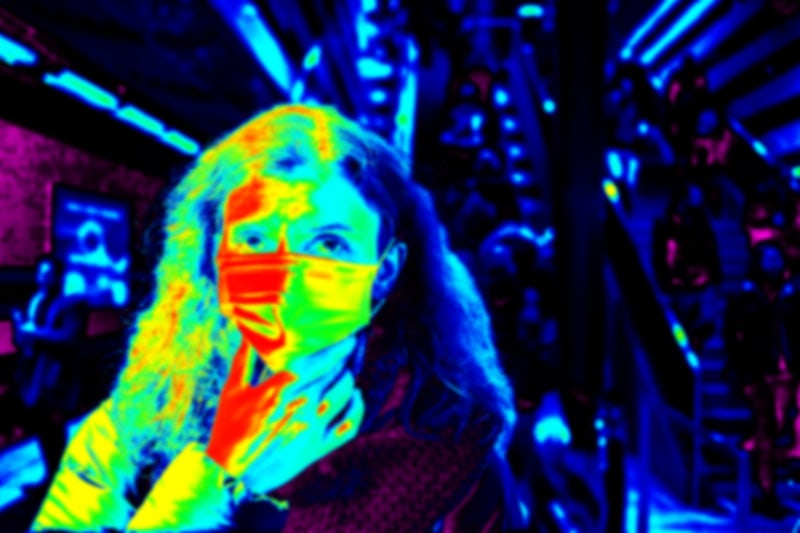
Due to the pandemic nature of the virus, it is crucial to detect and record conditions of personnel and authenticate in a contactless manner.
With the deployment of thermal facial recognition technology, it offers a quicker and safer alternative to traditional thermometers.
To illustrate the point above, our newly developed facial recognition terminal, ThermalFace is an all-in-one temperature scanner with built-in facial recognition and mask detection.
Our tool ensures there is no contact when it comes to screening people’s temperature and measurements are almost instant.
Another example to take note of is GovTech’s Data Science and Artificial Intelligence Division (DSAID) developed a contactless and automated thermal screening.
Known as VigilantGantry, it can be used to capture body temperature and perform facial indexes automatically. It can also be used to capture the date, time and location to establish contact tracing purposes in high human traffic areas.
Having said that, these thermal facial tools, including ours, have become the newest frontlines in keeping the public safer. But it’s also good to take note that thermal facial recognition is far from a perfect solution in curbing COVID-19.
For example, a person’s temperature can increase for many reasons — walking to work in Singapore’s hot, humid weather, exercise or stress — limiting the tool’s effectiveness in determining if the person is genuinely sick.
In addition, those who have the virus may not show symptoms such as fever.
As mentioned earlier, Health Minister Gan Kim Yong indicated that temperature screening is part of Singapore’s collective measures in tacking COVID-19.
And from the very same article, experts said that temperature screening could only work if people are honest in their declarations.
Let’s take a look at how our ThermalFace Recognition can be used in public settings with minimal training.
What is Intercorp Solutions’ Response to the Pandemic?
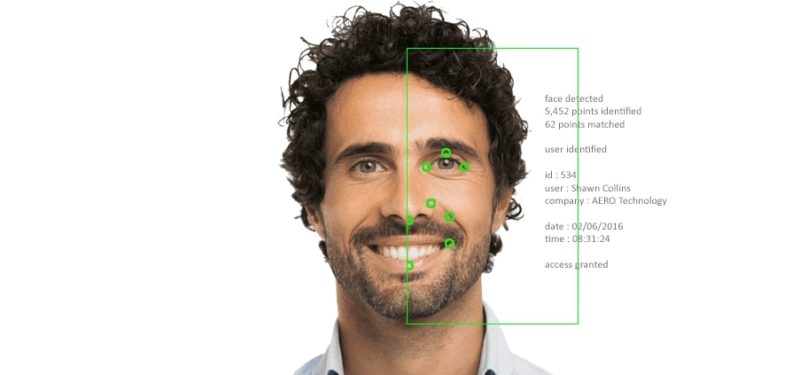
As Singapore eases into the ‘new normal’, you can be sure that Intercorp Solutions is well prepared to adapt to the current times. This also allows us to lend a hand in decreasing the occurrence of COVID-19 second wave.
To help stem the spread of COVID-19, here’s how our ThermalFace’s functions can help in further enhancing the precautionary measures.
What are the Benefits of the New ThermalFace Recognition?
First, our scanner utilises reliable medical-grade Vanadium Oxide detectors that can detect temperature fluctuations up to a high degree of 0.5°C which will be recorded as part of the person’s records.
Second, not only can it identify people even if they are wearing masks during facial authentication, but it can also be set up as a friendly reminder for people to wear masks.
It can also be put together as an authentication mandatory rule to wear masks for people before entering.
But it doesn’t stop there; ThermalFace comes with an attendance-taking device that can be used for employee’s daily timesheets for accurate payroll purposes.
Thus, making it perfect for any work settings such as worksite, offices, factories and many more.
Last but not least, our ThermalFace terminals are designed to be plug and play with Intercorp’s cloud BAS system.
Its multiple terminals can be linked up effortlessly to sync information with BAS in real-time, allowing immediate reporting and big data to be readily available.
Perhaps the biggest benefit of thermal technology is that our ThermalFace does not need to be near people being screened, which limits exposure to security personnel.
Get in Touch With Us For More Information About the ThermalFace Recognition
If you’re interested to know how our thermal facial recognition can be a part of your safety management measures at your site, contact us.
